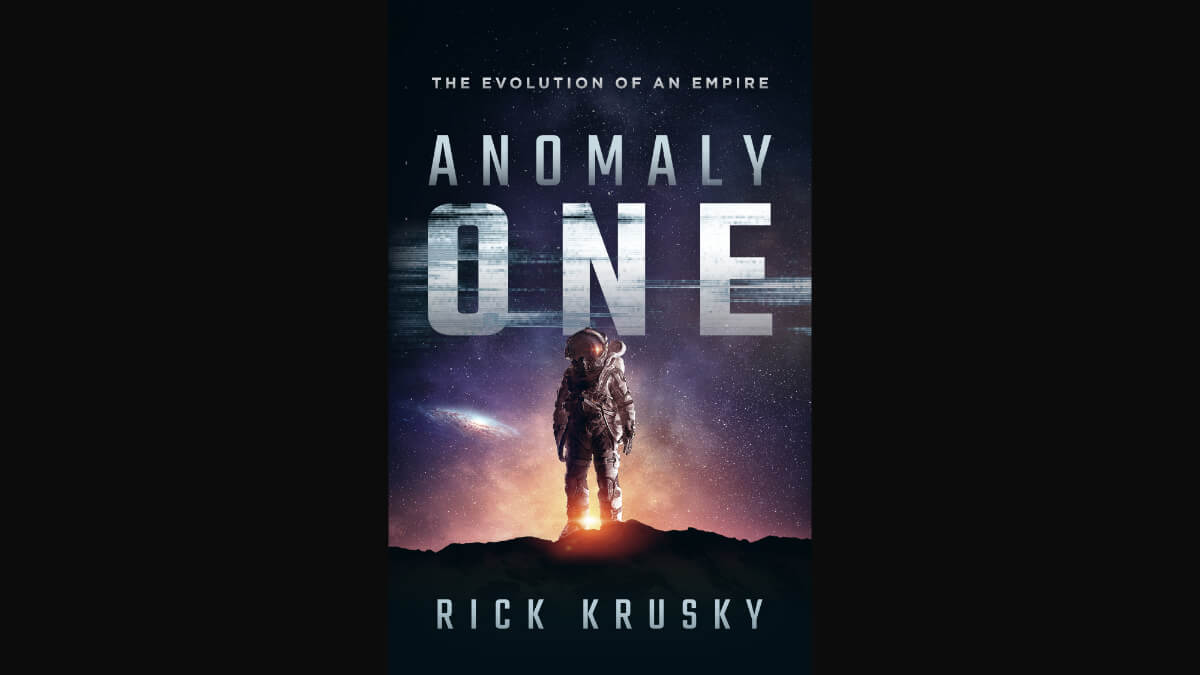
Creativity is sometimes best when it’s applied in a range of projects. Rick Krusky takes this concept to heart, and in addition to acting as an entertainment publicist, he also works as a writer and composer.
Krusky’s musical talents led him from his birthplace in Calgary, Canada, to Los Angeles. His compositions have scored Access Hollywood, as well as E! News Now and Mob Wives.
He is the author of two screenplays and a futuristic sci-fi novel, Anomaly One, which explores disease, empire, and underworld machinations. Krusky describes it as “a cross between Star Wars and Dune.”
In an email interview, Krusky discussed with Monsters & Critics the myriad of ways in which his early fascination with the Star Wars universe serves as a touchstone in his work.
Monsters & Critics: How did you discover Star Wars?
Rick Krusky: I actually saw the original in the theater in 1977. I remember on the drive home afterwards having a very distinct feeling of being affected, though I wasn’t sure exactly why or how. But it felt like I’d just experienced something very cool and powerful.
M&C: What is the impact of the franchise on your own creative work?
RK: Three things come to mind immediately: humor, optimism, and creative license. The franchise includes humor in a genre that is typically more dramatic.
Yes, Star Wars is darker at times, but it also includes a good amount of humor too, as well as a strong sense of optimism. I like that, and I naturally tend to incorporate those types of elements into my own writing.
It also serves to provide creative license. By that, I mean — when I’m writing — if I start to wonder if something is too “far out” or “unrealistic,” all I need to do is look at a franchise like Star Wars and it immediately helps to reduce any reservation I might have.
This might even be with something as simple as the naming of characters. If one of the most successful film franchises in the history of cinema can have a villain named Darth Vader who strangles people with “the Force,” or a 7-foot-tall Wookiee named Chewbacca who communicates by roaring, or a neurotic droid with an English accent named C-3PO whose best buddy is another faceless droid named R2-D2, then I figure whatever I’m doing creatively is probably okay [laughs].
M&C: Is there a particular character who resonates with you and serves as inspiration?
RK: It’s funny because there are two, and they’re opposites. Luke Skywalker and Darth Vader. Maybe they’re too obvious, or maybe they’re just that meaningful to the story.

M&C: If your book is a cross between Star Wars and Dune, which aspects reflect Star Wars?
The lighthearted nature of the franchise, as well as the spiritual or inspirational nature of it. And also that it’s guided by a definite moral compass.
M&C: How has “Star Wars exhaustion” affected the fan base, if at all? Do think this is possible– that there is an overwhelm of Star Wars material?
RK: I think it’s possible. By nature, our desire for something increases to the degree there is a scarcity. So it would follow that if something is provided in overwhelming volume, there could be a reduction of interest.
But just what constitutes “overwhelming volume” in such a hardcore community like the Star Wars community is tough to quantify. And then there’s also the factor of new fans, like my 8-year-old daughter who’s just getting started and who already knows more about the franchise than me in many ways.
But I think that what they’re doing, by bringing in new characters and spinoffs, helps to keep that exhaustion at bay.
M&C: What are you most excited about in the Star Wars universe right now?
RK: I have not seen The Mandalorian. I’ve heard great things and am eager to check it out. I’m also a fan of anything that goes into backstory—and from what I understand, that’s the case with The Mandalorian.
Also, who doesn’t want to know more about “Baby Yoda”?
M&C: What do you think Star Wars needs more of, both then and now? Less of?
RK: Less Jar Jar Binks. I’m just not a fan of that character. And I feel I may not be the only one.
M&C: How do you translate the visuals of the films to the “feel” of the written word?
Tough question.
I don’t know if you can entirely since they’re completely different mediums. There are things you can show with film that you can never “show” on the page.
But there are also things you can write in a novel that you cannot put up on a screen. I’ve actually written a couple of screenplays too, which are by nature very visually focused, so that may have been helpful when it came to translating visuals to the written word for a novel.
It’s funny because I’ve had a few people describe my novel as being “cinematic,” which at first took me by surprise since I associate that term so much with movies and visuals. But after I thought about it, I could kind of see what they meant—and liked it. I guess we have the “theatre of the mind” to thank for that.
Find Rick Krusky on Instagram at @rickkrusky. Follow Monsters and Critics’ Facebook page for the latest Star Wars theories, essays, news, and reviews.